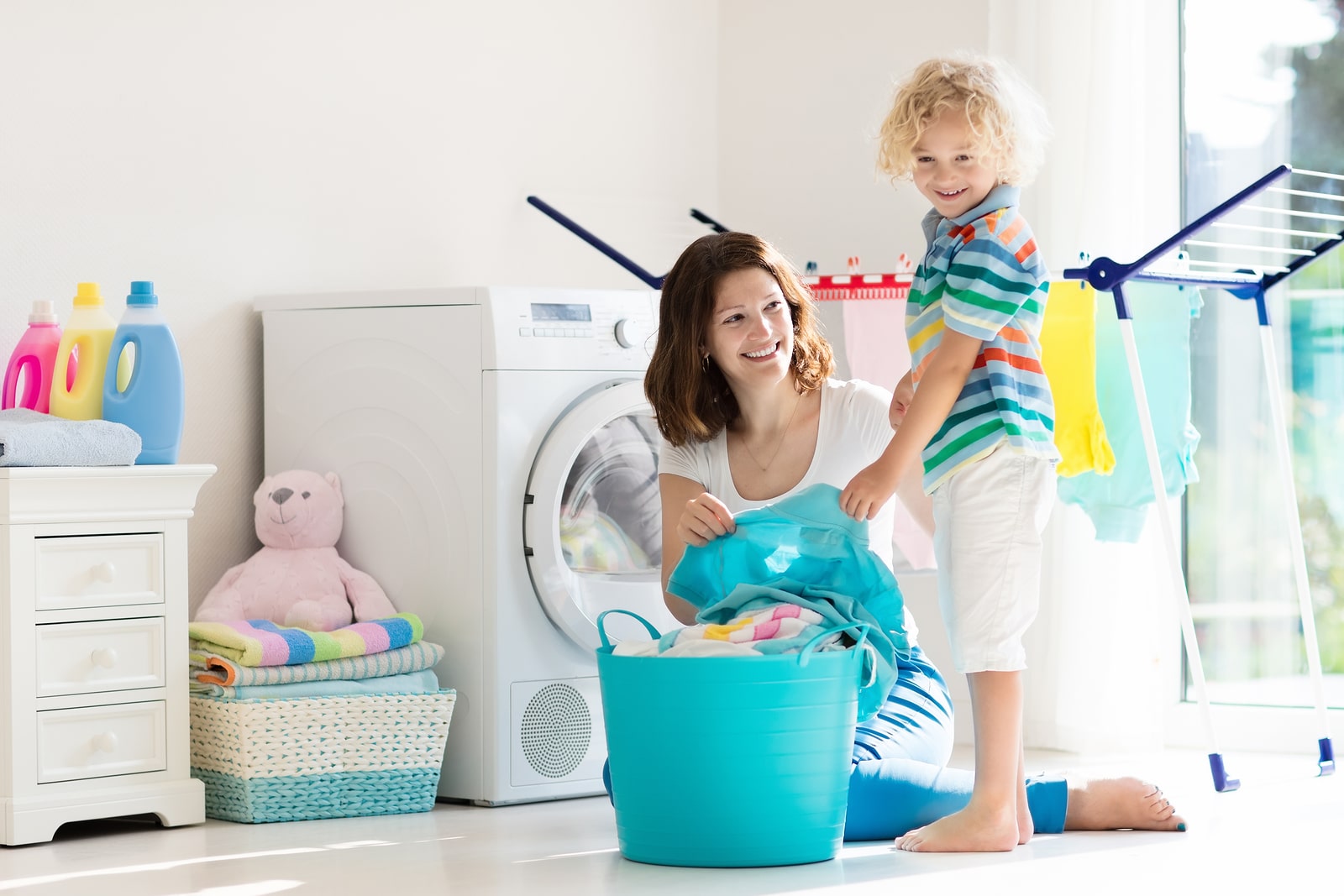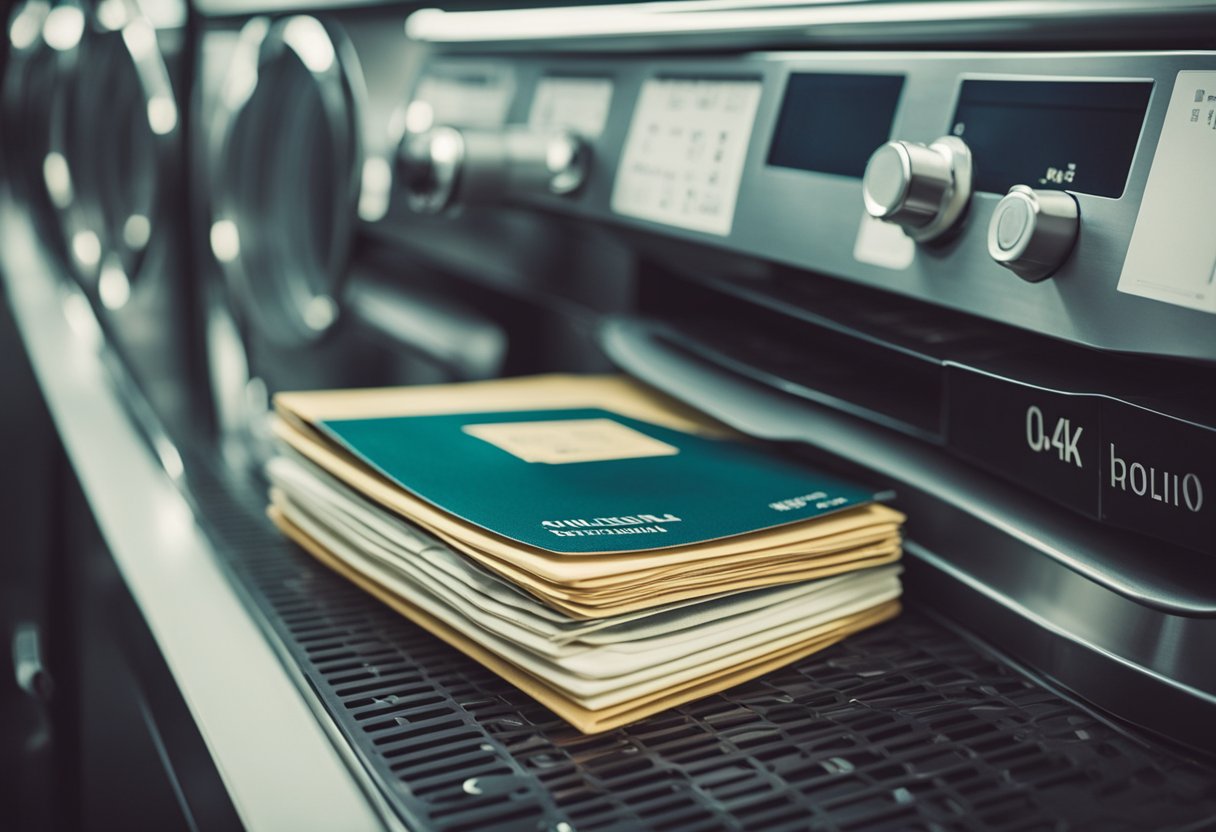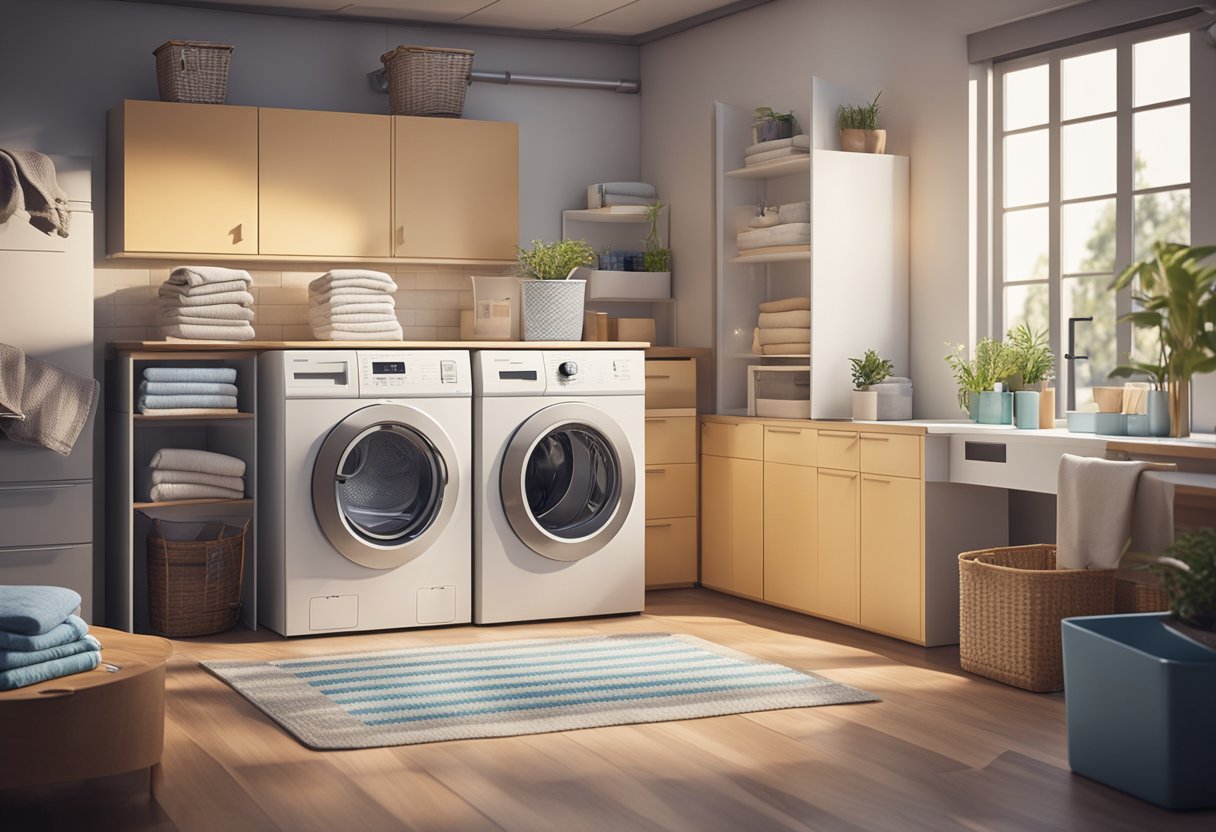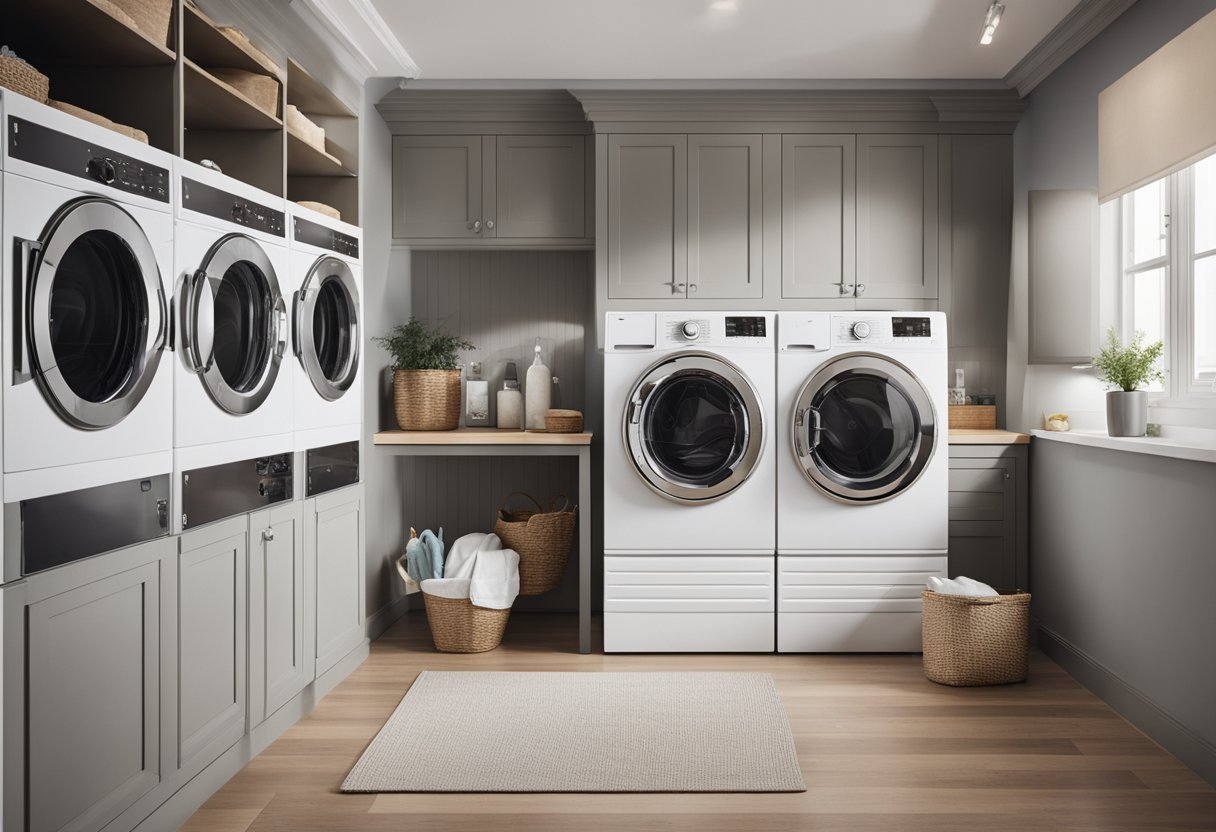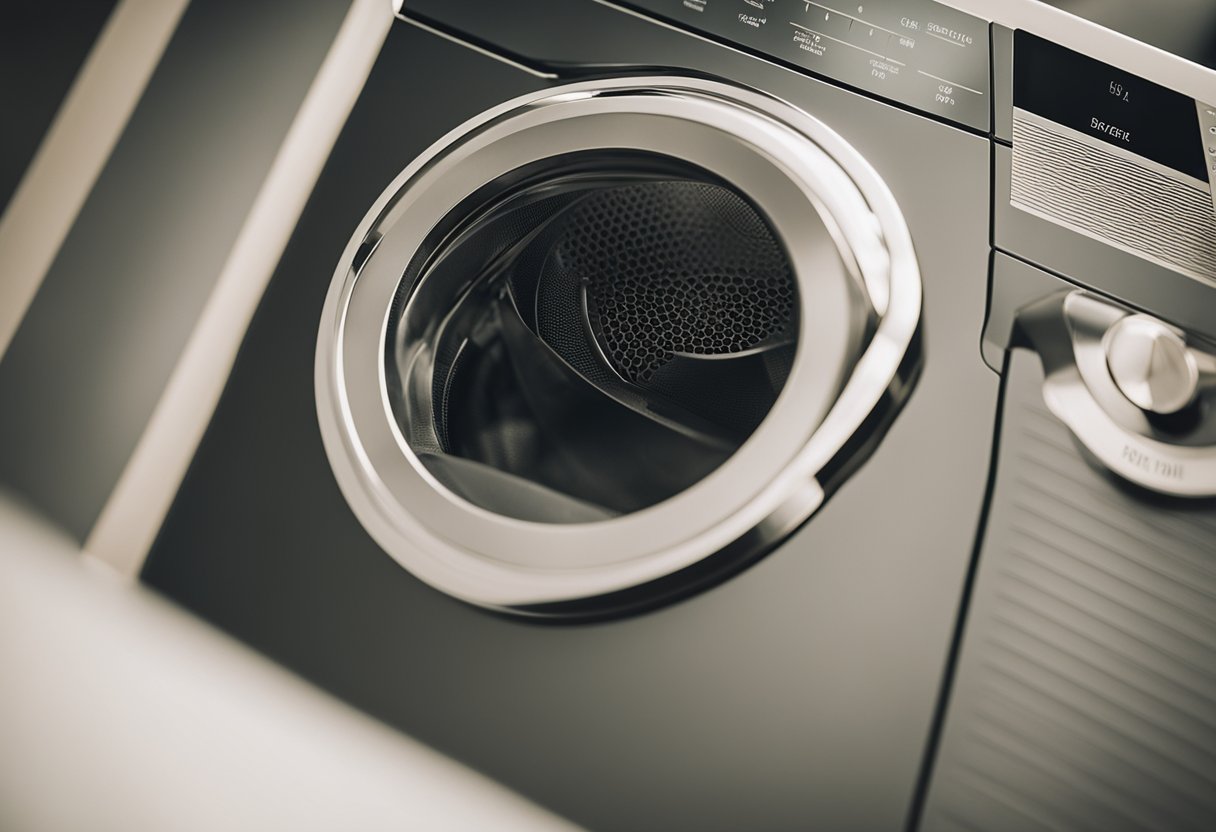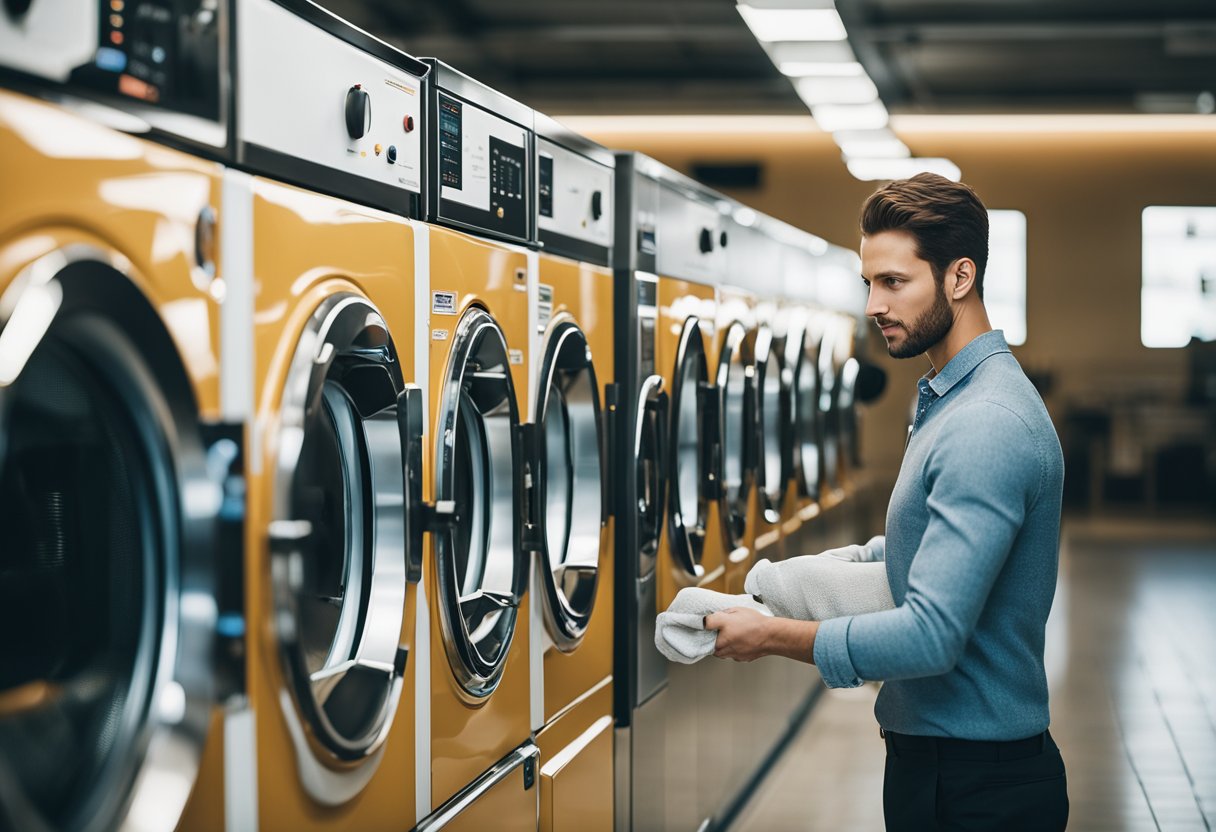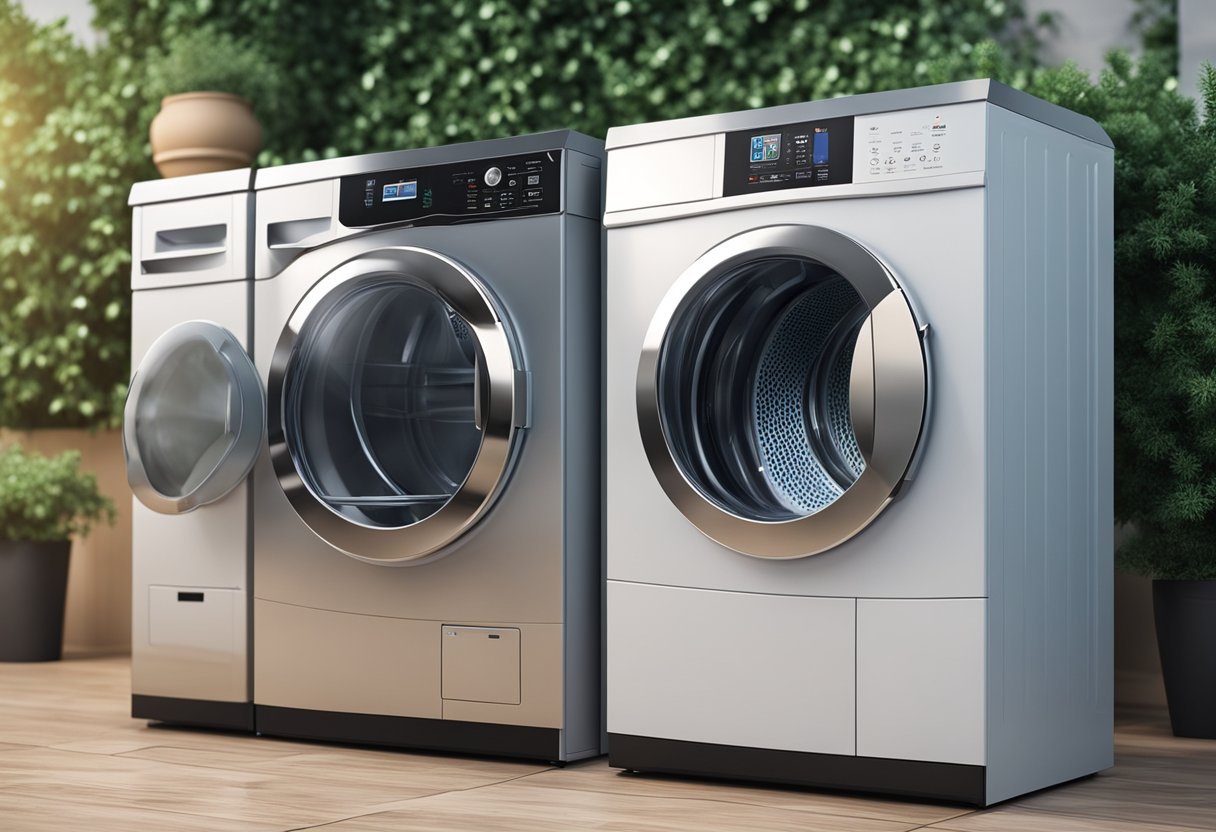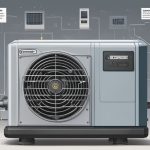The Ultimate Clothes Dryer Buyer’s Guide: Expert Tips for Smart Purchases
Selecting the perfect clothes dryer for your home can be a challenging task, as there are numerous factors to consider, such as differences in dryer types, key features, and budget constraints. In this comprehensive analysis, we aim to guide you through the process of determining your laundry needs, understanding essential features, and comparing the best dryer brands so that you can make a well-informed decision. By assessing space and installation requirements and considering the environmental impact and safety aspects, we will help you narrow down the options and choose the most suitable dryer for you.
In this article, we will discuss the different types of dryers, their key features, and the factors that make them stand out in a crowded appliance market. With an understanding of your specific requirements and preferences, you will be able to determine which dryer best fits your lifestyle and household needs. By comparing various brands and reading reviews, you can ensure that you’re investing in a quality appliance that will make your laundry routine more efficient and convenient.
Key Takeaways
- Determine the type of dryer that best suits your household needs and preferences.
- Consider space, installation, capacity, and features when selecting the ideal dryer.
- Keep budget, brand reputation, and environmental impact in mind for a well-rounded decision.
Understanding Different Types of Dryers
The clothes dryer market offers various types and features suitable for different living spaces and household needs. Understanding the different types of dryers available can help guide your decision when purchasing a new unit for your home.
Electric Dryers
Electric dryers are a popular option. These units require a dedicated 240-volt outlet to function and use electric heating elements to warm the air source. Electric dryers have the advantage of being generally easier to install and typically less expensive than gas dryers.
Gas Dryers
Gas dryers are another choice, utilizing natural gas or propane to heat the air source. Although gas dryers may have a higher upfront cost, they are more energy-efficient compared with their electric counterparts. Gas dryers require a gas hook-up and proper ventilation, so you’ll need to consult a professional installer to ensure your space can accommodate the installation safely.
Ventless Dryers
Ventless dryers offer an alternative for homes without external ventilation. Instead of venting moisture-laden air outside, ventless units use heat exchangers to cool and condense moisture, collecting it in a container or draining it through a pipe. This type of dryer is an ideal choice for apartments or areas with limited space and ventilation options.
Compact Units
Compact dryers are a popular choice for smaller living spaces. These units typically have a width around 24 inches and are designed to fit into tight spaces, such as closets or small laundry rooms. Despite their small size, compact units can still perform well but with a smaller capacity than full-sized dryers.
Stackable Units
Stackable units are another space-saving option that allows you to optimize your laundry area. These units consist of a combination of a washer and a dryer or two separate units designed to fit vertically on top of each other. Stackable units are often found in apartments or homes with limited floor space and offer the benefit of consolidating washing and drying tasks into a single location.
By exploring these dryer types and considering your living space, utility connections, and personal preferences, you will be well-equipped to make an informed decision when purchasing a new clothes dryer.
Why Clothes Dryers Matter
Clothes dryers have become an essential appliance in modern households. They provide a convenient and efficient way to dry laundry, saving time and effort compared to traditional methods like hang drying or using a clothesline. Dryers not only improve the quality of life for many people, but they also help maintain the life and appearance of clothing.
One of the primary benefits of clothes dryers is the time savings they provide. Especially in busy households or during rainy days, having a dryer can make the difference between having clean, dry clothes or being forced to wait for laundry to dry naturally. This can be particularly important for families with children, as it helps make sure everyone has clean clothes ready to wear.
Another advantage of clothes dryers is their contribution to maintaining the appearance and longevity of clothing. Many fabrics can become stiff or rough when air-dried, which can be uncomfortable to wear and may lead to decreased longevity of the garments. Clothes dryers can help prevent this by using gentle heat and tumble drying to soften fabrics and keep them looking and feeling their best.
Selecting the right clothes dryer is crucial, as dryers come in various sizes and types, such as electric and gas dryers. It’s essential to consider factors like energy efficiency, capacity, and available features when purchasing a dryer. For example, some models offer extended tumble options to help prevent wrinkling, while others focus on energy-saving technology.
In summary, clothes dryers play a significant role in modern households by saving time, ensuring the availability of fresh and dry clothing, and extending the life of garments. With the right choice of a clothes dryer, anyone can enjoy these benefits and improve their overall laundry experience.
Key Features to Consider
When shopping for a clothes dryer, several key features should be considered to ensure the best fit for your needs. One of the primary aspects to consider is the heat source, which could be either gas or electric. Both types have their benefits and drawbacks, with electric models being more common but potentially less energy efficient, while gas dryers are faster in drying clothes but may require a gas connection.
Another important feature to look at is the dryer’s venting. Proper venting is crucial for energy efficiency, safety, and the longevity of your appliance. Choose a model with the appropriate venting type based on your home’s setup, whether it’s vented outside or uses a ventless system with a heat exchanger or a condenser.
Additionally, consider the noise level of the dryer you are interested in, as excessive noise can be disruptive, especially if you plan to have the appliance in a space you frequently spend time. Some models are specifically designed to operate with minimal noise.
Other notable features to keep in mind include:
- Drying cycles: Look for models with multiple drying cycle options to accommodate different fabric types and care requirements.
- Adjustable temperature settings: This feature allows you to customize the drying temperature, an important factor for delicate clothing.
- Delayed start: Having the ability to schedule your dryer to start at a specific time can be handy, especially for those with busy lifestyles.
- Steam drying: This innovative feature helps reduce wrinkles, making it easier to iron your clothes after drying.
- Reversible doors: Dryers with reversible doors allow for easy access and flexibility in tight spaces, making laundry day more convenient.
It is essential to evaluate your needs and preferences when selecting a clothes dryer, taking into account not only the features listed above but also the overall design, capacity, and energy efficiency. By doing so, you will ensure a satisfying and long-lasting appliance experience.
Assessing Your Laundry Needs
Before choosing the ideal clothes dryer for your household, it’s essential to determine your specific laundry needs. Start by evaluating how often you do laundry and the types of items typically washed. For instance, if you handle large quantities of bed sheets or towels, opting for a dryer with a larger capacity might be more appropriate.
Another factor to consider is the available space in your laundry area. Make sure to measure the space and take note of the venting and power connections. Keep in mind there are two primary types of clothes dryers: vented and ventless. You should choose one based on the requirements of your space.
When assessing your laundry needs, also think about your preferred energy source. Clothes dryers generally run on electricity, but some use natural gas, which can be more energy-efficient. However, gas dryers require a gas hookup and a dedicated 120-volt outlet. It’s essential to verify the compatibility of your chosen energy source with your existing housing setup.
Lastly, consider any special features you might need, such as a steam function to remove wrinkles or a sanitizing cycle. These can be helpful for households with specific laundry requirements, like washing delicate fabrics or drying items used by individuals with allergies.
In summary, it’s important to understand your laundry habits, space constraints, energy source, and desired features before selecting a clothes dryer. This will ensure you find the right appliance that fits your needs and makes your everyday laundry experience more efficient and enjoyable.
Space and Installation Considerations
Dimensions and Size
When considering the purchase of a new dryer, it is essential to measure the space where you plan to place the machine. Dryer models come in a range of dimensions, from compact units to larger laundry machines, so you need to choose one that fits comfortably in the available space. Be sure to note the height, width, and depth of the area, as well as leaving room for any doors or drawers to open. If space is limited, you may want to consider stackable or combined washer-dryer units.
Ventilation and Power Requirements
Proper ventilation is crucial when installing a dryer. While most standard-sized dryer units require a vent to release the hot, damp air, there are also ventless dryers available. Ventless dryers use a heat exchanger, which eliminates the need for an external vent. Be sure to check the manufacturer’s recommendations on venting and choose a dryer that suits your home setup. Additionally, follow local building codes for dryer vent installation.
As for power requirements, there are two main types of dryers: electric and gas. Electric dryers require a dedicated electrical outlet of either 240 volts (for full-sized units) or 120 volts (for compact models). It’s essential to check that the electrical outlet is nearby and has the correct voltage to accommodate your chosen dryer. On the other hand, gas dryers need a dedicated gas line and hookup. If your home does not have an existing gas connection, the installation can be more complicated and costly. Make sure to check your power options before making a purchase.
By taking dimensions, ventilation, and power requirements into account, you can ensure a smooth installation process and select a dryer that fits your space and needs.
Capacity and Load Size
Drum Capacity
When buying a clothes dryer, it is essential to consider the drum capacity. This refers to the amount of space inside the dryer drum and directly affects how much laundry you can dry at once. Drum capacity is usually measured in cubic feet, with dryers ranging from small, compact sizes of around 3-4 cubic feet to larger, high-capacity dryers of 6-9 cubic feet or more.
For most households, a drum capacity of 6-7 cubic feet is sufficient to accommodate laundry needs. If you regularly wash and dry large items such as comforters or have a large family, you may want to consider a dryer with a higher capacity. Keep in mind that a larger drum may require more energy to heat and fully dry each load, but it also allows you to dry more clothes at once, saving time and energy in the long run.
To effectively utilize your dryer’s capacity, be mindful of load size. Overloading the dryer can result in longer drying times and can cause wear and tear on the motor and other components. Conversely, underloading the dryer can be inefficient, as it still uses the same amount of energy as a full load but for fewer items. Aim to fill the drum about 3/4 full for optimal drying without overloading.
When deciding on drum capacity, it’s also helpful to consider the space available for your dryer. Ensure there is enough room for your chosen dryer model, including a few inches of clearance around the sides and back for proper ventilation and the option to hang a clothesline for air-drying delicate items when necessary.
In summary, choosing a dryer with the correct drum capacity and load size for your household’s laundry needs is crucial to ensure efficient drying, energy savings, and preserving the lifespan of your appliance.
Features to Look for in a Dryer
Energy Efficiency
One of the important aspects to consider when purchasing a clothes dryer is energy efficiency. Look for dryers with an Energy Star certification as they typically use less energy than non-certified models. These energy-efficient dryers can help reduce your electricity bills and have a more positive environmental impact.
Moisture Sensors
Moisture sensors are a useful feature to have in a dryer. They automatically detect the moisture level in the clothes and stop the drying cycle when the clothes are dry. This saves energy and prevents your clothes from over-drying, which can lead to fabric damage. Be sure to look for a dryer with this functionality to preserve the life of your garments.
Delayed Start and Steam Cycles
A dryer with a delayed start option allows you to set the dryer to begin at a specific time, helping you take advantage of cheaper energy rates during off-peak hours. Steam cycles are another beneficial feature, which utilize steam to help remove wrinkles, sanitize your clothes, and refresh your wardrobe. These features enhance the functionality of your dryer and make it more convenient to use.
Smart Features
Modern dryers come with an array of smart features, integrating technology to make the appliance more user-friendly. Look for dryers with Wi-Fi capability, allowing you to control and monitor them remotely through a smartphone app. These smart features can offer better convenience and save you time in your daily routine.
Noise Level
Noise level is another factor to consider when choosing a dryer, especially if you live in a small space or need to do laundry during the night. A quieter dryer can make your home more comfortable and less disruptive during operation.
Pedestal and Agitator
A pedestal can be a convenient accessory to elevate your dryer to a more comfortable height, making it easier to load and unload laundry. Agitators are featured in some top-loading washing machines, but not typically found in dryers. However, some dryers include tumble mechanisms that help to circulate the clothes more effectively for even drying.
Understanding Pricing and Budgeting
When it comes to purchasing a clothes dryer, understanding pricing and budgeting is crucial to ensure you make the best decision for your needs and wallet. This section will cover two important aspects: Price Range and Energy Cost Considerations.
Price Range
The price of a clothes dryer can vary significantly, depending on factors such as size, type, features, and brand. Generally, you can expect to find dryers priced anywhere between $300 to over $1,000. It is essential to establish a budget before beginning your search, as this will help narrow down your options and avoid overspending. While purchasing a more affordable model may be tempting, it is essential to consider the potential long-term costs and benefits associated with each option, including energy-efficiency and durability.
Energy Cost Considerations
One of the most critical factors to consider when purchasing a clothes dryer is its energy use. An energy-efficient dryer can save you money on utility bills over time, making it a sound investment. Look for Energy Star certified models, which are designed to use significantly less energy than standard models without sacrificing performance. Energy-efficient models may have a higher upfront cost but will likely save you more in the long run through decreased energy costs.
It is also important to consider the dryer’s energy source, as this can impact both your budget and energy use. Electric dryers are more popular and easier to install, but gas dryers are usually more energy-efficient. Keep in mind that gas dryers require a dedicated gas line and professional installation.
In summary, comprehending both price range and energy cost considerations is essential for those in the market for a new clothes dryer. Establish a budget and take the time to research energy-efficient options to make the most informed decision possible.
Brand Comparison and Reviews
Brand Overview
When it comes to purchasing a clothes dryer, there are several reputable brands to choose from. Some of the most well-known and reliable brands in the market include Samsung, LG, Whirlpool, Maytag, Kenmore, Haier, and Frigidaire. Each of these brands has its unique selling points, with some excelling in performance, while others have a superior appearance or innovative features.
Warranty Comparisons
While considering the purchase of a clothes dryer, it’s essential to compare the warranties offered by different brands. A warranty safeguards your investment and ensures the manufacturer’s support in case of any issues. Here’s a brief overview of warranties offered by popular brands:
- Samsung: Offers a 1-year warranty on parts and labor, and a 10-year warranty on the motor
- LG: Provides a 1-year warranty on parts and labor, and a 10-year warranty on the motor
- Whirlpool: Gives a 1-year limited warranty on parts and labor
- Maytag: Offers a 1-year warranty on parts and labor, and a 10-year limited parts warranty on the drive motor and drum
- Kenmore: Provides a 1-year limited warranty on parts and labor
- Haier: Gives a 1-year limited warranty on parts and labor, and a 5-year limited warranty on the sealed refrigeration system (for ventless models)
- Frigidaire: Offers a 1-year warranty on parts and labor
Performance and Appearance
The performance of a dryer is crucial, as it determines how effectively and efficiently your clothes dry. Some factors affecting performance include energy efficiency, drying time, and noise levels. LG and Samsung are known for their high-performing dryers with advanced features, while Maytag and Whirlpool have gained popularity for their durable and straightforward designs.
In terms of appearance, consumers tend to gravitate towards sleek, modern designs that complement their laundry rooms. Samsung, LG, and Frigidaire produce dryers with visually appealing aesthetics, often offering a variety of color options for customization.
Remember that reviews and ratings from reliable sources like Consumer Reports and Tom’s Guide may provide added insights to help you make an informed decision. Furthermore, visiting local retailers and comparing prices will also assist in selecting the best clothes dryer for your needs.
Maintenance Tips
One crucial aspect of owning a clothes dryer is proper maintenance. Keeping your dryer clean and well-maintained will not only extend its life but also improve its efficiency and reduce the risk of fire hazards. Here are some essential maintenance tips to help you care for your clothes dryer.
First, always clean out the lint filter every time you use your dryer. Lint accumulation can lead to slower drying times, increased energy bills, and even fire hazards. It’s easy to forget, but make it a habit to remove lint after every drying cycle.
Secondly, it’s essential to inspect and clean the dryer vent and ducts regularly. Accumulation of lint or other obstructions can lead to reduced airflow and overheating. Ensure that the vent pipe and flexible hose are free from crimps or blockages. You can clean the ducts with a specially made brush or remove the hose and clean it by hand.
Another important tip is to avoid putting soiled clothes in the dryer. Ensure that you’re only drying clothes that have been washed in a washing machine to keep the interior of your dryer clean.
Lastly, don’t ignore regular dryer maintenance. According to State Farm, neglecting maintenance can impact your machine’s efficiency, lead to costly repairs, and in some cases, even pose a fire hazard. Be proactive in maintaining your dryer, and it will serve you well for many years to come.
Safety Considerations
When choosing a clothes dryer, safety should be a top priority. Several factors play a role in ensuring that your dryer operates safely and efficiently. Regular maintenance, venting materials, and moisture sensors can contribute to a safer experience.
Proper Venting Materials: It is crucial to use appropriate venting materials for your clothes dryer to avoid potential fire hazards. Avoid using materials like plastic or vinyl, as they can easily trap lint and are not heat-resistant. Opt for UL-listed metal ducts, such as rigid aluminum or steel, to enhance safety and efficiency levels Consumer Reports.
Regular Maintenance: Routine cleaning of the lint filter after each cycle can significantly reduce the risk of a dryer fire. Additionally, make sure to inspect and clean the dryer vent pipe and exhaust periodically, at least twice a year, to prevent lint buildup and to maintain proper airflow.
Moisture Sensors: Modern dryers with moisture sensors can help avoid overheating and save energy. These sensors automatically measure the moisture level in clothes and shut off the dryer when they are dry, preventing possible safety hazards and prolonging the life of your fabrics Appliances Connection.
Remember, following the manufacturer’s guidelines and recommendations can help maintain your clothes dryer’s safety and efficiency. Consult the user manual for specific safety tips, installation requirements, and maintenance schedules.
Environmental Impact
When choosing a clothes dryer, considering its environmental impact is essential for making a greener choice. Dryers with lower energy consumption not only reduce your environmental footprint but also save money on utility bills. Two main aspects to consider are the type of dryer and its energy efficiency.
Heat pump dryers are a popular eco-friendly option, known for using less energy compared to traditional dryers. They recycle the heat generated during the drying process, reducing overall energy consumption. According to Consumer Reports, Green Choice status recognizes dryers offering better efficiency and lower environmental impact.
Energy efficiency is another critical factor to assess when looking for an eco-friendly dryer. The Combined Energy Factor (CEF) rating indicates the energy efficiency of a dryer, with a higher number representing better efficiency. The Earth911 buyer’s guide suggests comparing CEF ratings to find a dryer that aligns with your environmental goals.
Additionally, consider the following tips to further reduce the environmental impact of your dryer usage:
- Opt for sensor-based dryers that automatically detect when clothes are dry and stop the cycle, reducing energy waste.
- Regularly clean the lint filter to maintain better airflow and efficiency.
- Choose shorter drying cycles and air dry when possible.
- Invest in dryers with durable and quality parts, as longer-lasting appliances contribute to less waste.
By carefully evaluating the environmental impact of a clothes dryer, you can make a more eco-conscious decision and contribute to a sustainable lifestyle.
Frequently Asked Questions
What is the ideal dryer capacity for a family of 4?
The ideal dryer capacity for a family of 4 typically falls within the range of 7 to 8.5 cubic feet. This capacity can accommodate a standard load of laundry, including larger items such as towels, sheets, and bedding. It is essential to choose a dryer with adequate capacity for your family’s needs, as overloading the dryer can lead to longer drying times and increased wear on the appliance.
What are the top dryer brands to consider?
Some of the top dryer brands include LG, Whirlpool, Samsung, Maytag, and GE. LG dryers, in particular, are known for their excellent performance, reliability, and energy efficiency, while other reputable brands such as Whirlpool and Samsung also offer a variety of high-quality models.
Which dryers have the least problems?
Dryers with fewer reported problems tend to come from brands known for their reliability and quality manufacturing. LG, for example, dominates the dryer ratings and is ranked high in both lab test performance and reliability ratings. As you research, it is essential to consider factors like reviews, warranties, and customer service when choosing a dryer with minimal problems.
What are the key features to look for in a clothes dryer?
When shopping for a clothes dryer, keep an eye out for features like moisture sensors, extended tumble options, energy efficiency, and noise reduction. Moisture sensors help ensure that your dryer does not run longer than necessary, saving energy and preventing clothing damage. Extended tumble options allow for unheated, intermittent tumbling to prevent wrinkles from setting in, and energy-efficient models can reduce your energy usage and costs. Consider the noise level of your laundry appliances, as quieter models will make the overall experience less disruptive.
How do gas and electric dryers compare?
Both gas and electric dryers have their pros and cons. Gas dryers typically have lower operating costs and faster drying times, making them more energy-efficient. On the other hand, electric dryers are easier to install and generally have a lower upfront cost. When choosing between gas and electric, consider your home’s existing connections and the cost of installing a gas line if necessary.
What are the latest innovations in clothes dryers for 2023?
As dryer technology continues to evolve, manufacturers are incorporating advanced features to improve performance, efficiency, and user experience. Keep an eye out for innovations like smart technology integration, heat pump technology, steam-cleaning cycles, and allergen-reducing cycles in the latest 2023 dryer models. These innovative features aim to simplify the laundry process and accommodate more specific clothing care needs.
Conclusion
In this comprehensive clothes dryer buyer’s guide, various factors to consider before making a purchase have been discussed. By understanding the differences between gas and electric dryers, the importance of choosing the appropriate capacity, and the benefits of features like sensor drying, one can make an informed decision that best suits their laundry needs.
Additionally, considering the installation space and proper measurements before purchasing enables a hassle-free installation process. By comparing different models and weighing pros and cons, one can find the most suitable clothes dryer for their home.
By following this guide, anyone can confidently select a clothes dryer that meets their specific requirements while providing long-lasting performance and efficiency.

